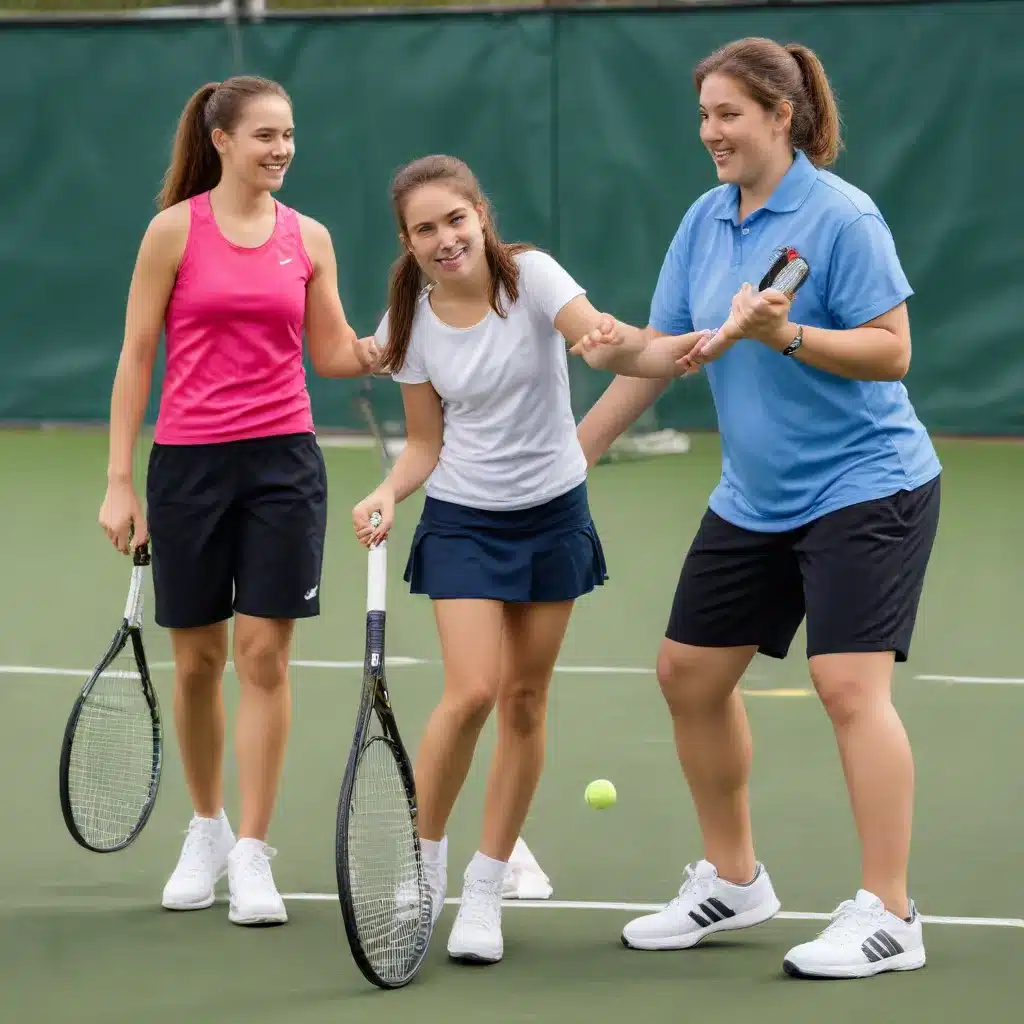
Understanding Disability and Tennis Regulations in London
In the vibrant city of London, where the love for tennis runs deep, it is crucial to ensure that the sport is accessible and inclusive for all players, including those with disabilities. The regulations governing the participation of individuals with disabilities in tennis are rooted in the Equality Act 2010, which aims to protect people from discrimination and promote equal opportunities.
According to the Equality Act, a person is considered to have a disability if they have a physical or mental impairment that has a substantial and long-term adverse effect on their ability to carry out normal day-to-day activities. This broad definition encompasses a wide range of conditions, from physical disabilities to sensory impairments and neurological disorders.
Tennis clubs and coaching facilities in London are required to make reasonable adjustments to their services, facilities, and policies to accommodate players with disabilities. This may include providing accessible entrances and courts, adjusting equipment or coaching methods, and ensuring that staff are trained to support players with diverse needs.
Inclusive Coaching Strategies for Tennis Players with Disabilities
Adapting tennis programs to cater to players with disabilities requires a multifaceted approach that prioritizes inclusivity and personalized support. Tennis coaches in London have been at the forefront of developing innovative strategies to ensure an enriching and empowering experience for all participants.
Individualized Assessments and Goal Setting
The Tennis Foundation in London emphasizes the importance of conducting thorough assessments to understand each player’s unique needs, abilities, and aspirations. By working closely with the player and their support network, coaches can develop personalized training programs that address specific goals, such as improving mobility, coordination, or tactical awareness.
Adaptive Equipment and Modifications
Tennis equipment can be adapted to accommodate players with various disabilities. Adjustable rackets, oversized grips, and specialized wheelchair attachments are some examples of the innovative solutions available in London. Coaches work closely with players to identify and implement the most suitable equipment, ensuring a positive and empowering experience on the court.
Inclusive Coaching Techniques
Effective coaching for players with disabilities often requires a flexible and creative approach. Coaches may use visual aids, verbal cues, or physical demonstrations to enhance understanding and skill development. They also prioritize fostering a supportive and encouraging environment, allowing players to explore their capabilities and build confidence.
Team-Based and Peer-to-Peer Learning
Incorporating team-based activities and peer-to-peer learning can be particularly beneficial for players with disabilities. These approaches encourage social interaction, collaboration, and the development of teamwork skills, which can be invaluable in the sport of tennis.
Continuous Evaluation and Adaptation
Successful inclusive tennis programs in London recognize the importance of ongoing evaluation and adaptation. Coaches regularly assess the effectiveness of their strategies, solicit feedback from players, and make necessary adjustments to ensure a continuously rewarding and progressive learning experience.
Costs and Funding for Inclusive Tennis Programs in London
Providing accessible and inclusive tennis programs in London can involve additional costs, but there are various funding sources and support mechanisms available to make these opportunities more affordable and accessible.
Facility Upgrades and Equipment Costs
Adapting tennis facilities to meet the needs of players with disabilities may require investments in infrastructure, such as accessible pathways, adjustable seating, and specialized equipment. Coaching organizations in London often seek grants, sponsorships, or partnerships to offset these expenses.
Coaching and Training Expenses
Specialized coaching for players with disabilities may require additional training and certifications for coaches, as well as the allocation of more one-on-one or small-group instructional time. However, many local and national organizations, such as Disability Sports Coach, provide subsidized or free training programs to support the development of inclusive coaching skills.
Player Subsidies and Scholarship Opportunities
To ensure that inclusive tennis programs remain accessible to players of all socioeconomic backgrounds, some organizations in London offer financial assistance, scholarships, or subsidized fees. These initiatives help to remove barriers and promote equal opportunities for participation.
Funding Sources and Partnerships
Tennis clubs, coaching providers, and community organizations in London often collaborate with local authorities, disability-focused charities, and national governing bodies to secure funding and resources for inclusive tennis programs. These partnerships can provide access to grants, equipment donations, and specialized support services.
Embracing the Future of Inclusive Tennis in London
As the tennis community in London continues to evolve, there is a growing emphasis on leveraging technology and innovation to enhance the inclusivity and accessibility of the sport.
Assistive Technologies and Adaptive Equipment
Advancements in assistive technologies, such as smart sensors, AI-powered tracking systems, and customizable tennis equipment, are transforming the way players with disabilities engage with the sport. These innovations can improve safety, provide real-time feedback, and enable more independent participation.
Virtual and Augmented Reality Training
The integration of virtual and augmented reality into tennis training programs can offer unique opportunities for players with disabilities. These immersive technologies can simulate game scenarios, provide personalized feedback, and enable remote coaching, expanding the reach and accessibility of tennis instruction.
Inclusive Event Hosting and Spectator Experiences
Tennis events and tournaments in London are increasingly focused on creating inclusive experiences for both players and spectators with disabilities. This may involve accessible seating, assistive listening devices, and enhanced signage to ensure that everyone can fully engage with and enjoy the sport.
Conclusion
Fostering inclusive tennis participation in London is a multifaceted endeavor that requires the collective effort of tennis clubs, coaching providers, local authorities, and the broader community. By understanding the relevant regulations, adopting inclusive coaching strategies, and embracing the latest technological advancements, the tennis landscape in London is steadily becoming more accessible and empowering for players with disabilities.
As the city’s tennis community continues to evolve, the focus on inclusivity will undoubtedly strengthen, providing greater opportunities for individuals of all abilities to experience the joy, camaraderie, and personal growth that the sport of tennis can offer. By prioritizing accessibility and diversity, the tennis community in London is not only enhancing the overall player experience but also setting an inspiring example for the rest of the country and beyond.

